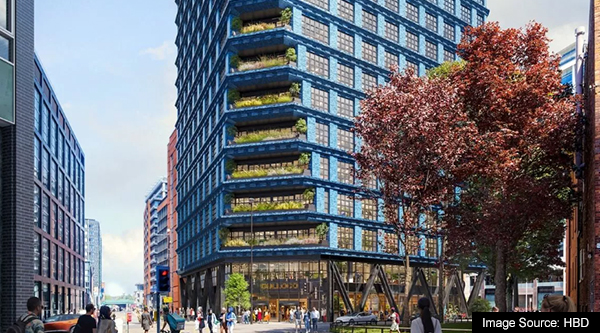
Household energy efficiency must become the UK’s top infrastructure priority, the UK Green Building Council is urging.
The demand comes one year on from the launch of the Green Deal – the Government’s flagship energy efficiency policy – which has suffered from disappointing take-up, and follows cuts to its sister scheme the Energy Company Obligation (ECO) at the end of last year.
UK-GBC is calling on the Government to back energy efficiency, creating a national retrofit programme to help permanently reduce consumers’ energy bills and create thousands of new jobs.
Paul King, Chief Executive of the UK Green Building Council, said: “Improving the energy efficiency of our cold and draughty homes is the only way to permanently cut households’ spiralling energy bills and will be a major driver of economic growth. Government must make energy efficiency a top national infrastructure priority, as important as decisions on HS2 or aviation expansion.
“While the Green Deal is the cornerstone of the UK’s retrofit policy, it has so far massively under delivered. Government has to step in to create incentives that encourage homes into taking action and be prepared to prioritise capital spending on energy efficiency. Underwriting the Green Deal – as Government has done with Help to Buy - would provide a huge shot in the arm for the retrofit industry.”
A new report published by UK-GBC finds that more attractive Green Deal finance could provide a boost to the scheme.
The report – Green Deal Finance: Examining the Green Deal interest rate as a barrier to take-up – finds that while the interest rate on Green Deal loans (currently 8-10 per cent offered by the Green Deal Finance Company) is not the overriding issue deterring consumers from signing up to the scheme, as is often suggested, lower rates could increase take-up.
Produced by a Task Group of UK-GBC members and other organisations, the report sets out a number of potential options for reducing the interest rate. These include:
- Government subsidising a lower interest rate - For every £1bn worth of Green Deal plans taken out by householders, it would cost Government up to £300m to reduce the interest rates to between 4 and 5 per cent. Whether accounted for as a cost or liability for Government, there are significant benefits to UK Plc as a result.
- Changing the Green Deal policy – Relaxing the “Golden Rule” (which states the expected financial savings should be greater than the costs attached to the energy bill) would not reduce the interest rate but would allow households to choose to repay loans more quickly and therefore reduce the overall amount repaid. Repayments could also be altered to vary over time along with inflation or the Bank of England base rate, reducing the rate offered by the Green Deal Finance Company.
- Alternative sources of finance - Social investors or community funding could offer finance at lower interest rates using EIS tax relief (see notes to editors) to reduce their cost of capital to 4-5 per cent. Similarly, local authorities could access low cost capital through their own reserves or borrowing from central Government, using this to set up a fund and offer a Green Deal finance package delivering an APR of 5-7 per cent.
Christoph Harwood, Partner at Marksman Consulting who chaired the Task Group, said: “The report finds that while current interest rates are not the biggest barrier to take up of Green Deal finance, lower rates would make the scheme much more attractive to consumers.
“However, given the Green Deal requirements, this cannot be achieved through a standard market solution and so financial intervention at either a local or national level would be required to deliver a lower interest rate at the large scale required.”




















